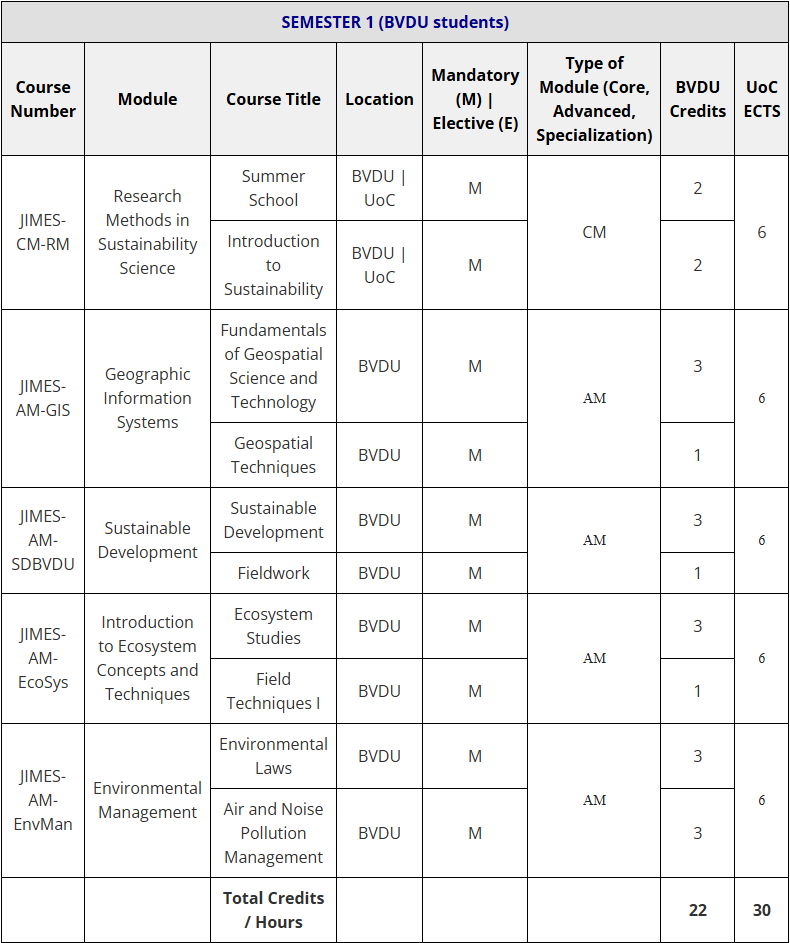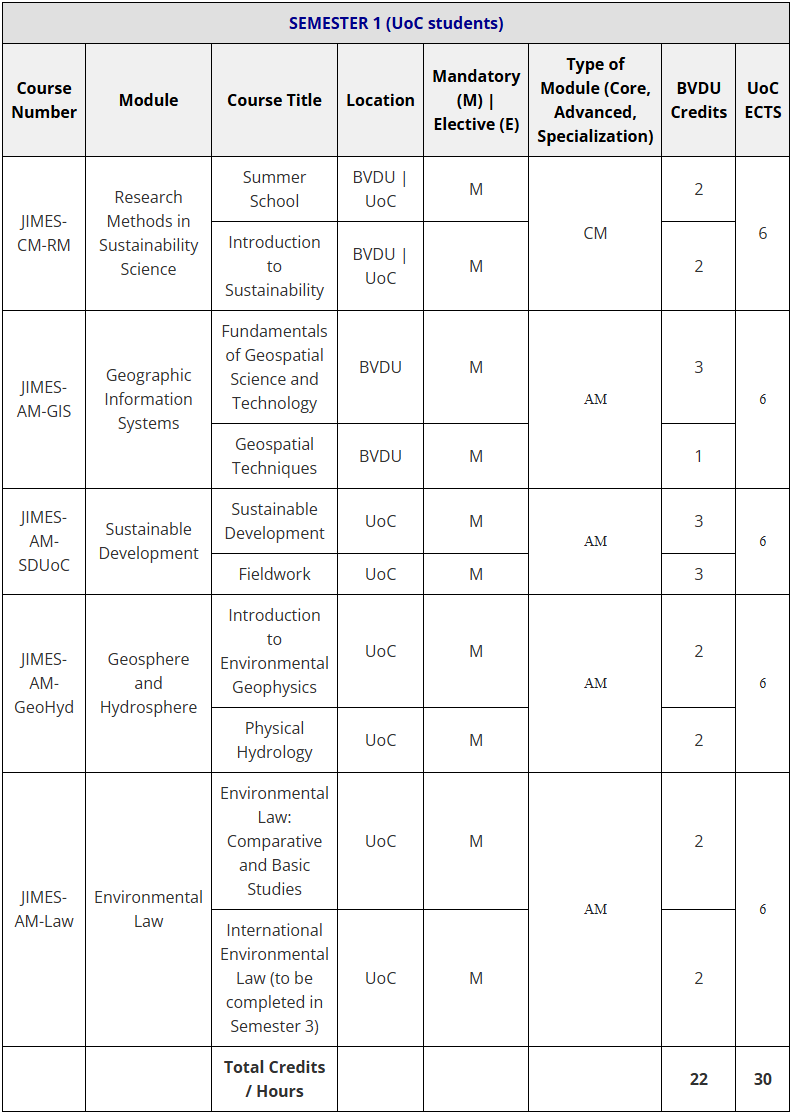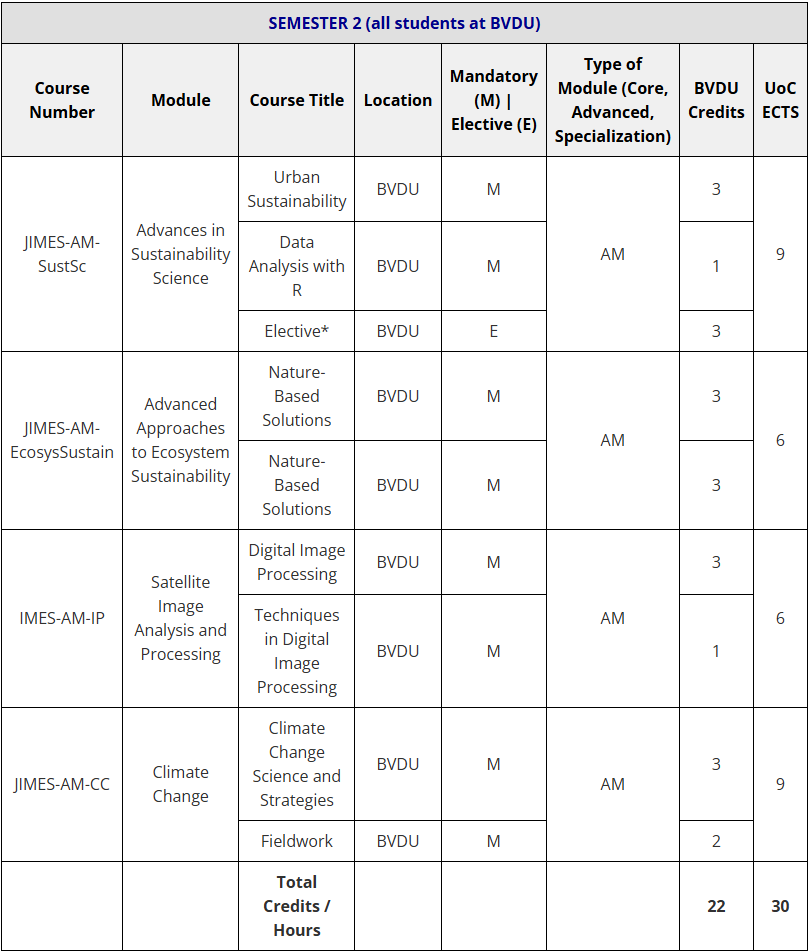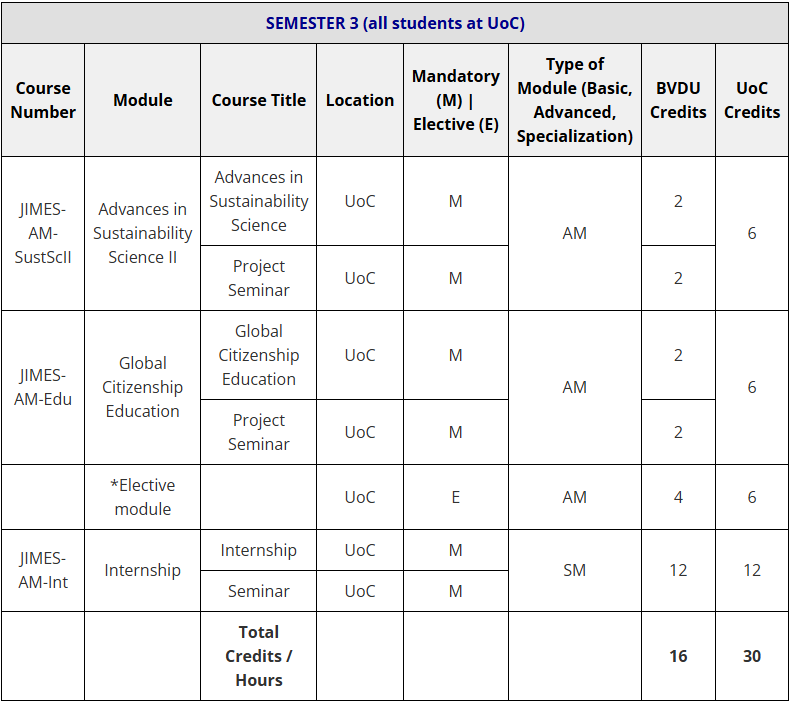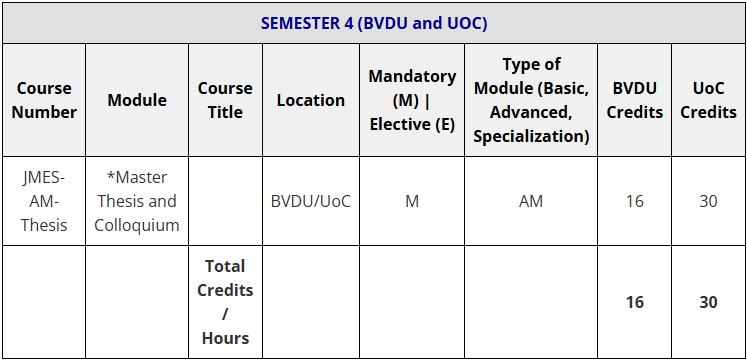The JIMES Learning Experience
Where Science Meets Sustainability
The Joint International Master in Environmental Sustainability (JIMES) is a unique, transdisciplinary Master’s program offered by the University of Cologne (Germany) and Bharati Vidyapeeth (Deemed to be University), Pune (India).
JIMES combines science, technology, and policy to tackle today’s most pressing environmental challenges. Students learn how to think across disciplines and borders — and gain the tools to lead global sustainability efforts.
What sets JIMES apart? This isn’t just another environmental science degree. The program includes a built-in exchange semester at the partner university, giving you hands-on experience in two world regions. You’ll work across cultures, apply your knowledge in the field, and build a truly global perspective.
The curriculum explores high-impact topics like:
- Climate change science and strategies
- Nature-based solutions
- Environmental governance and law
- Geospatial science and digital image processing
- Ecosystem sustainability and environmental modeling
JIMES focuses on real-world learning. You’ll engage in fieldwork, internships, and applied research projects — not just lectures. You’ll also receive joint supervision for your Master’s thesis from faculty in both India and Germany, preparing you for an international career in research, policy, or the green economy.
This program draws from the natural sciences, social sciences, law, and technology — giving you a wide-angle lens on sustainability. Whether you want to work in environmental consulting, international development, climate policy, or conservation, JIMES is your launchpad.
Built on 17+ Years of Collaboration
JIMES builds on a long-standing partnership between the University of Cologne and Bharati Vidyapeeth (Deemed to be) University in Pune, especially with its Institute of Environment Education and Research (BVIEER). For over 17 years, both institutions have worked together in joint teaching, fieldwork, and research — creating not only academic cooperation, but a shared community rooted in trust, curiosity, and a commitment to sustainability.
What You'll Gain from JIMES
- Transdisciplinary Expertise for Real-World Impact
You’ll learn how to connect natural sciences, geospatial technologies, and policy frameworks to tackle complex environmental challenges — and design smarter, more sustainable solutions. - Hands-On Skills in Sustainability Science and Technology
Through fieldwork and applied projects, you’ll build practical skills in geospatial analysis, climate modeling, and environmental impact assessment — preparing you for careers in the green economy, conservation, and beyond. - Global Perspective on Sustainability and Policy
By studying in both India and Germany, you’ll develop the cultural and academic experience needed to work across borders — whether in climate policy, corporate sustainability, or environmental consulting.
How JIMES is structured
- Semester 1 – Home University
You begin your studies at your home university: if you're enrolled at the University of Cologne, you start in Cologne; if you're from BVDU, you start in Pune. This semester builds your foundation in sustainability science, research methods, and geospatial tools. - Semester 2 – Exchange Semester at BVDU (India)
You continue your studies in Pune, where all students come together for an immersive semester focused on applied environmental topics like ecosystem science, sustainable development, field techniques, and environmental management. You’ll work closely with faculty and communities in the Indian context. - Semester 3 – Specialisation and Integration at UoC (Germany)
You move to Cologne for advanced modules that help you connect and apply what you've learned so far. This includes courses in sustainability science, global citizenship education, and a project seminar to shape your thesis topic. You’ll also complete a two-month internship and choose one elective module that fits your interests — from environmental economics to ecosystem dynamics or climate modelling. - Semester 4 – Master’s Thesis
You complete your Master’s thesis at your home university, with joint supervision from both institutions. In some cases, you may apply for permission to conduct your thesis at the partner university
JIMES Curriculum at a Glance
The JIMES curriculum is modular, interdisciplinary, and internationally coordinated. Each semester combines coursework, applied learning, and academic mentoring — with specific modules offered at both universities.
For full details on course content, credit structure, and examination formats, check the JIMES Module Handbook in Downloads & Documents.
